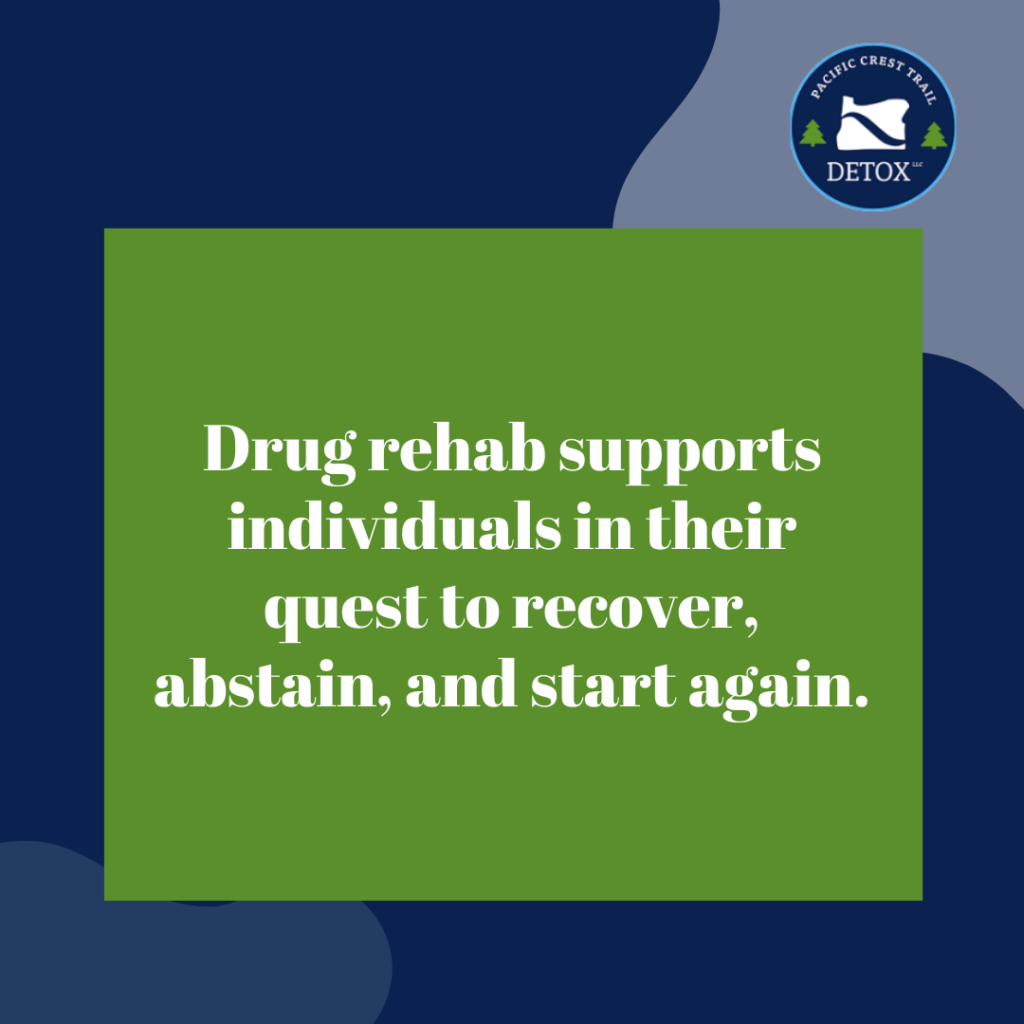Drug and alcohol addiction have become prevalent around the world as an established lifestyle trend afflicting both affluent and developing nations. Today, addiction to drugs, alcohol, and cigarettes is recognized as a significant threat to public health.
Addressing drug addiction requires a comprehensive approach, with drug rehabilitation playing a critical role in the recovery process.
Drugs that are often misused have a significant impact on the nervous system, especially the brain. While some of these drugs are artificial or custom blends, others, like opium, marijuana, cocaine, nicotine, caffeine, mescaline, and psilocybin, come from natural sources.
Despite the overall effectiveness of drug rehab programs, it’s important to note that recovery is an individualized process. Successful recovery is only possible through professional treatment, personal determination, and a supportive community.
Continue reading to discover more about multiple approaches for drug recovery and therapy—aspects influencing the results of treatment and the value of post-rehabilitation care.

Understanding Drug Rehabilitation
Drug rehabilitation is a thorough and organized procedure geared to aid individuals in conquering addiction and substance abuse. Its foremost goals are to support individuals in their quest to recover, abstain, and start again.
Here are the most common drug rehab programs:
Inpatient and Outpatient Programs
Inpatient (residential) programs require you to stay at a treatment facility, providing a structured environment away from triggers and temptations.
Whereas outpatient programs allow individuals to receive treatment while living at home, attending therapy sessions and support groups on a scheduled basis.
Therapeutic Approaches
Various evidence-based therapeutic approaches like cognitive-behavioral therapy (CBT), motivational enhancement therapy (MET), dialectical behavior therapy (DBT), and contingency management are used in drug rehab.
Group therapy, individual counseling, and family therapy may also be incorporated to address different aspects of addiction.
Treatment Approaches in Drug Rehab
To achieve a lasting recovery, you or a loved one may need one degree of care or many, depending on the gravity of the addiction. The forms of rehab where programs for therapy will be used are outlined below:
Detoxification
Medical detox programs help in patient stabilization and overcoming alcohol or drug withdrawal symptoms. It helps you better cope with your current problems and regulate emotions.
It could run for a few days or even weeks. The patient may require an inpatient program after stabilization is accomplished.
Cognitive-Behavioral Therapy (CBT)
Cognitive Behavioral Therapy (CBT) is a mainstream therapy modality that modifies maladaptive thought processes and behavior linked to substance misuse.
This method helps patients manage triggers, develop coping mechanisms, and strengthen their ability to withstand urges.
Motivational Enhancement Therapy (MET)
This method seeks to improve a person’s drive to change by examining and addressing ambivalence. It places a premium on developing a personal drive for healthy behavioral change, empathy, and support.
Medication-Assisted Therapy (MAT)
In MAT, drugs like methadone, buprenorphine, or naltrexone are used to help patients control their cravings and withdrawal symptoms. This method is often employed in addition to behavioral therapy and counseling.
Dialectical Behavior Therapy (DBT)
DBT addresses emotional dysregulation, interpersonal issues, and self-destructive behaviors by fusing cognitive-behavioral therapy and meditation. Those who co-occur with mental health issues and substance abuse benefit most from this approach.
Holistic Therapies
Holistic therapies such as yoga, meditation, acupuncture, creative therapy, and dietary guidance are employed to enhance overall health and aid in healing.
Measuring the Success Rates of Drug Rehab
While a definitive cure for addiction remains elusive, it is widely recognized as a disease that can be effectively treated.
Research conducted by the Butler Center for Research at the Hazelden Betty Ford Foundation highlights promising outcomes in this regard. Their findings show that approximately 89% of individuals who complete an alcohol treatment program maintain their sobriety during the first month following rehabilitation.
Furthermore, for those who have participated in drug treatment programs, between 85% to 95% report sustained sobriety nine months after completing rehab.
Additionally, the success rate of rehabilitation is notably high, at 68%, for those who undergo detoxification prior to starting their treatment program.

Factors Influencing Rehab Outcomes
The results of drug recovery programs can vary depending on a number of factors. Here are a few key factors that may affect the results of rehab:
Motivation for Change
The individual’s readiness and willingness to change play a significant role. Intrinsic motivation and a genuine desire to overcome addiction can positively impact treatment outcomes.
Severity of Addiction
The severity and duration of substance use can affect the complexity of the treatment process. Individuals with more severe addictions may require more intensive and extended interventions.
Environmental Factors
The environment in which a person lives can have an effect on their ability to heal. The likelihood of success can be increased by having access to a loving community and a stable, drug-free living environment.
Personal Resilience
How successfully a person handles the highs and lows of the recovery process depends on their level of resilience, coping mechanisms, and capacity for change.
Treatment Adherence and Engagement
Positive results are contingent upon patients actively participating in treatment plans, which includes going to therapy sessions, adhering to prescription schedules (if any), and doing rehabilitation routines.
The Role of Continued Support Post-Rehab
Readjusting to everyday life after being in a structured rehabilitation setting can be difficult, but people can overcome these obstacles with continued assistance.
Counseling and Therapy
Counseling following rehabilitation offers a safe haven whereby individuals can talk about persistent problems, work through unsolved concerns, and seek advice from professionals. For long-term healing, this continued mental health treatment is necessary.
Support Groups
Engagement in peer support networks or 12-step programs develops a sense of camaraderie and mutual experiences. Individuals who receive group assistance feel more understood and less disconnected.

Relapse Prevention Planning
It is critical to establish a clear plan to cope with probable relapse triggers or setbacks. This strategy may contain techniques for getting urgent help and, if necessary, changing treatment procedures.
Celebrating Milestones
Honoring and appreciating recovery milestones encourages positive habits and provides motivation to keep moving forward.
Conclusion
Addressing the widespread challenge of drug addiction requires a multi-faceted approach involving not only rehabilitation but also prevention, education, and community support.
Creating a comprehensive and long-lasting network that attends to all facets of a person’s life is the goal of post-rehab care. It reinforces the principles taught during therapy and aids in the development of a happy, drug-free life.
Once you make the decision to continue leading a sober life after leaving a rehab center, sobriety will begin to unveil itself. At Pacific Crest Trail Detox, we walk alongside you as you overcome every hurdle in your path to a fulfilling life free from drugs.

